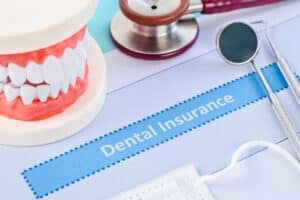Tooth infections, also known as dental abscesses, occur when bacteria invade the innermost part of the tooth, leading to pus buildup and severe pain. While it may be tempting to try and manage a tooth infection on your own, it is crucial to understand the risks and the best course of action for treating this serious dental condition.
Understanding Tooth Infections
A tooth infection typically starts in the tooth’s pulp, which contains nerves and blood vessels. When bacteria penetrate the pulp, usually through a cavity, crack, or injury, they can cause an infection. The resulting abscess can form at the root of the tooth or in the surrounding gum tissue, leading to symptoms such as:
- Severe, throbbing toothache
- Sensitivity to hot and cold
- Swelling in the face or cheek
- Fever
- Swollen lymph nodes under the jaw or in the neck
- Bad taste in the mouth from the pus
Why Self-Treatment is Not Recommended
Trying to treat a tooth infection on your own can be dangerous and is generally not recommended. Here’s why:
- Ineffective Pain Management: Over-the-counter pain relievers like ibuprofen or acetaminophen can temporarily reduce pain, but they do not address the underlying infection. Without proper treatment, the infection can worsen.
- Risk of Complications: An untreated tooth infection can spread to other parts of the body, including the jaw, neck, and even the brain. This can lead to life-threatening conditions such as sepsis.
- Temporary Relief: Home remedies might provide short-term relief but won’t eliminate the infection. Common home remedies include saltwater rinses, cold compresses, or garlic, which can help with symptoms but do not cure the infection.
- Missed Diagnosis: A dental professional can accurately diagnose the extent of the infection and recommend the appropriate treatment. Without professional evaluation, you might misdiagnose or underestimate the severity of the condition.
Professional Treatment Options
Professional dental care is essential for effectively treating a tooth infection. Here are the common treatments a dentist might recommend:
- Antibiotics: Your dentist may prescribe antibiotics to help eliminate the infection. However, antibiotics alone are usually not enough to treat a dental abscess fully, and they must be combined with other treatments.
- Root Canal Therapy: This procedure involves removing the infected pulp, cleaning the tooth’s interior, and sealing it to prevent further infection. Root canal therapy can save a severely infected tooth from extraction.
- Drainage: In some cases, the dentist may need to drain the abscess to remove the pus and reduce pressure and pain.
- Tooth Extraction: If the tooth is too damaged to be saved, the dentist may recommend extraction. After the tooth is removed, the dentist will clean the area to ensure no infection remains.
- Pain Management: Along with treating the infection, your dentist can provide recommendations for managing pain and swelling, ensuring you are comfortable during the healing process.
Preventing Tooth Infections
Preventing a tooth infection is always better than having to treat one. Here are some tips for maintaining good oral health:
- Regular Dental Check-Ups: Visit your Haltom City dentist regularly for cleanings and check-ups. Early detection of cavities and other issues can prevent infections.
- Good Oral Hygiene: Brush your teeth at least twice a day with fluoride toothpaste and floss daily to remove plaque and food particles.
- Healthy Diet: Avoid excessive sugary foods and drinks, as they can contribute to tooth decay.
- Mouthguard Use: If you play sports or grind your teeth at night, use a mouthguard to protect your teeth from injury and wear.
While it might be tempting to try and manage a tooth infection on your own, professional dental treatment is necessary to effectively eliminate the infection and prevent serious complications. Home remedies can provide temporary relief but do not address the root cause of the infection. If you suspect you have a tooth infection, seek prompt dental care to ensure proper treatment and protect your overall health. Regular dental check-ups and good oral hygiene practices are key to preventing tooth infections and maintaining a healthy smile.





